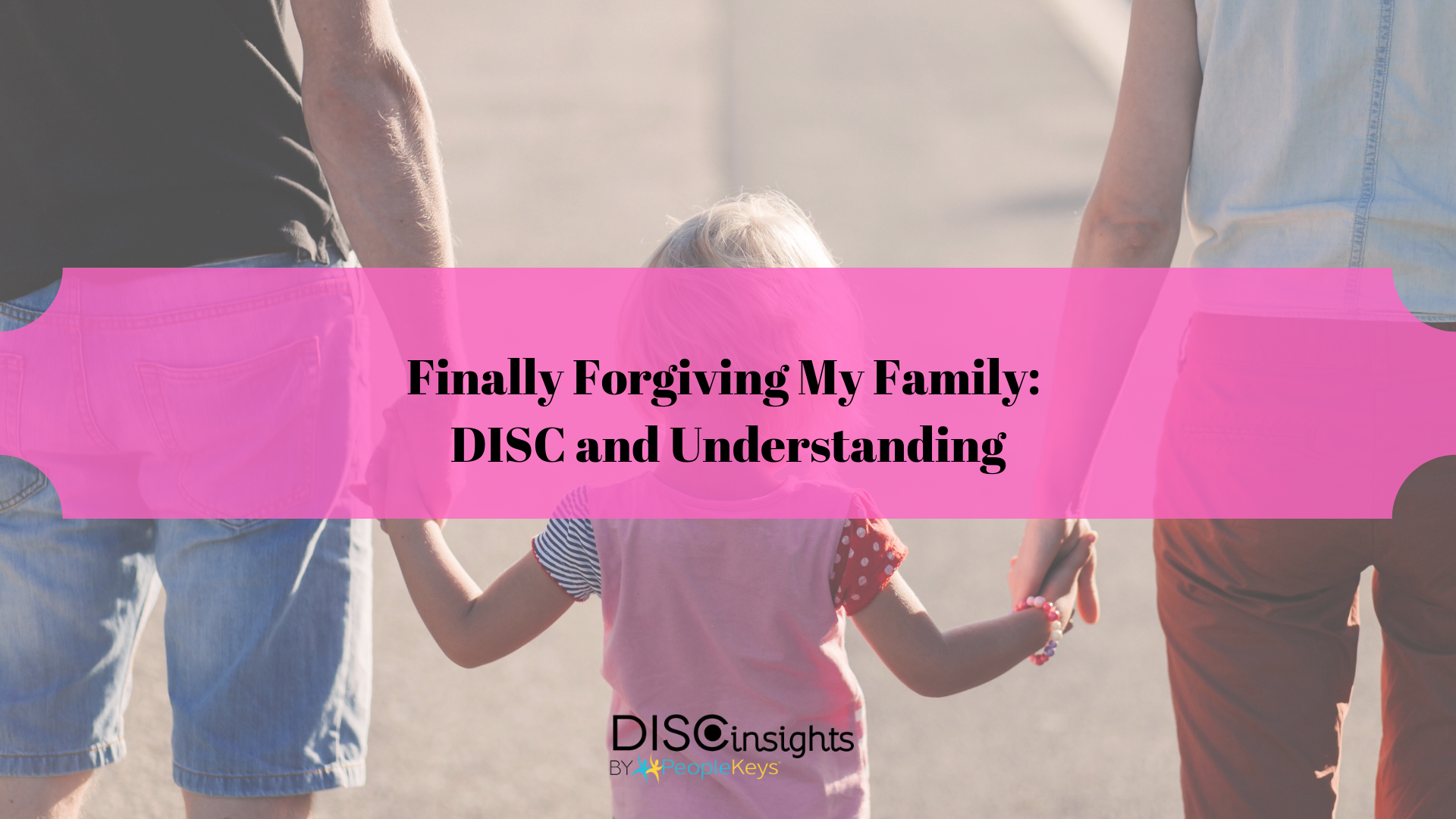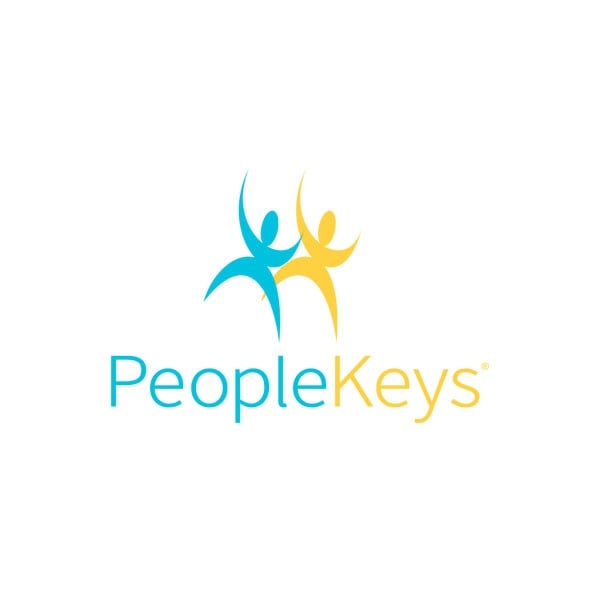- SHOP BY PRODUCT
- DISC TRAINING & CERTIFICATION TOOLS
- DISC RESOURCES
- BLOG
- SHOP BY PRODUCT
- DISC TRAINING & CERTIFICATION TOOLS
- DISC RESOURCES
- BLOG
- ALL ITEMS



“Eat the apple!” My father screamed as I fumbled at unlocking the front door. “No, I don’t have time. My ride is outside. I don’t want to make them mad,” I replied. “Fine! Then you are grounded!”
As the debate continued, I racked up two and then eventually three weeks of grounding -- for not eating a rapidly browning slice of Red Delicious. I was indignant, offended, and in my teenage angst, probably a little less than polite. Didn’t he understand that I needed to go? What was wrong with him? The people who were picking me up for school were going to be so angry that I was late! They’d never want me hanging out with their daughter again!
This isn’t a novel refrain. A teenage daughter who is overly concerned about being rejected. An authoritative father figure who communicates by yelling. These are old, familiar characters; however, as I come to understand that people’s behavior is different -- but predictably so -- I can begin to see my father’s responses as more automatic and less personal. “Teenage Me” felt herself to be unjustly punished. I was Ariel in The Little Mermaid, a helpless victim of my father’s disproportionate anger. I know, I know -- Staple hand to forehead in a “woe is me” gesture. Heartbreaking.
As I grew older, I still struggled to understand acts like this. To me, the most important thing was to be pleasant, amusing, and extroverted so that you could get people to like you. To my father, the most important thing appeared to be that people do exactly what he said, even when it didn’t make sense to them. But I think I might actually get it now.
I am a newbie to DISC -- a freshman, if you will. As a people-oriented person, I have always amused myself by pondering the motivations and machinations of the humans around me. Some people pursued impressive, lucrative, accomplishment-laden careers. I just wanted to know how the mind works, what makes people’s personalities distinct, and what motivates them.
My DISC profile report indicates that I am predominately an “I” style. An I style personality can be characterized by behavior that is “sociable, independent, persuasive, and emotional.” An I is “more concerned with popularity than with tangible results.” Yup. That’s me! And my father? He’s a D, for Dominant. (The DISC literate readers may insert an “Aha!” moment here, if they hadn’t already put this together.)
My father’s behavioral analysis indicates that he is “direct, decisive, has a high ego-strength, and an argumentative attitude.” The good thing about this is that he is decisive, task-oriented, and gets results. He is extremely extroverted and thrives on challenges. When he takes the time to discuss ideas, he is very convincing. My father is the type of person you would go to in a crisis. He worked in a medical field, and he had to make important decisions in a timely fashion. He is good at this; he will make a decision and take charge. The flip side of this is that in some scenarios, his decisions may not be based on facts or an objective analysis of a situation. My father may have thorough knowledge of the workings of the human body, but the motivations and needs of a teenage daughter were a whole other animal. To my father, the most important thing was that I be physically healthy. To him, that meant I had to take my vitamin and eat an apple slice every morning. Groan.
Any rational human knows that a vitamin and an apple are not sufficient to "keep the doctor away." To my father, however, this little symbol was essential. He had made a split second decision that if I consumed these two items every morning, I would be healthy and able-bodied. He enforced this decision without analyzing its basis on facts.
I am an I. My strengths include having the abilities to persuade, negotiate, make peace, avoid conflict, and be a creative problem-solver. I am extroverted and people-oriented. My greatest fear is rejection.
My father’s greatest fear is being taken advantage of. He was the primary bread-winner in our household. He provided the food and the shelter. In his mind that meant that his children were obligated to be grateful and obedient toward him. When we didn’t listen, we were taking advantage of the services he had provided. We were poking at his greatest fear.
An I’s greatest fear is rejection. This can be seen in the microcosm of the apple incident. I was terrified of making my friend and her parents wait. I wanted them to like me, and I wanted them to want me around. When I was late, I disturbed this relationship. I left myself open for rejection. When my father tried to force me to stay and eat the apple, I tried to negotiate and keep the peace by informing him of the need to be on time. I didn’t use facts to persuade him. Because I am an I, I used emotional appeals. I told him of my greatest fear. And he implied that I was ungrateful -- the cardinal sin. Both of our greatest fears were being invoked. Neither one of us could budge. We couldn’t see from the other person’s perspective. Productive communication halted.
Stalemate.
And three weeks of being grounded.
What I see now is that my father’s primary motivation was to get me to respect the gifts that he had given me. I could do this symbolically by eating the apple.
How would I change the scenario now that I have all of this perspective and understanding? I could have told my friends to wait, and risk their rejection (the thought makes me queasy). I could have told him that I appreciate that he was looking out for me and trying to take care of my health. I could have told him that I appreciate everything that he did for me. I could have appealed to his task-oriented personality by telling him that, although I appreciate all of these things, I didn’t want to keep my friend’s parents from getting to work to get things done. I could have offered up two quick facts about the efficacy of vitamin consumption in the afternoon and assured him that he would see results when I got back from school.
I could have done a lot of things to improve the communication between my father, a D, and myself, an I.
Or I guess I could’ve just eaten the stinkin’ apple.
Sorry, Dad. And I forgive you.

© PeopleKeys. All Rights Reserved
WORKING DAYS/HOURS
Mon - Fri / 8:30AM - 5:00PM EST
